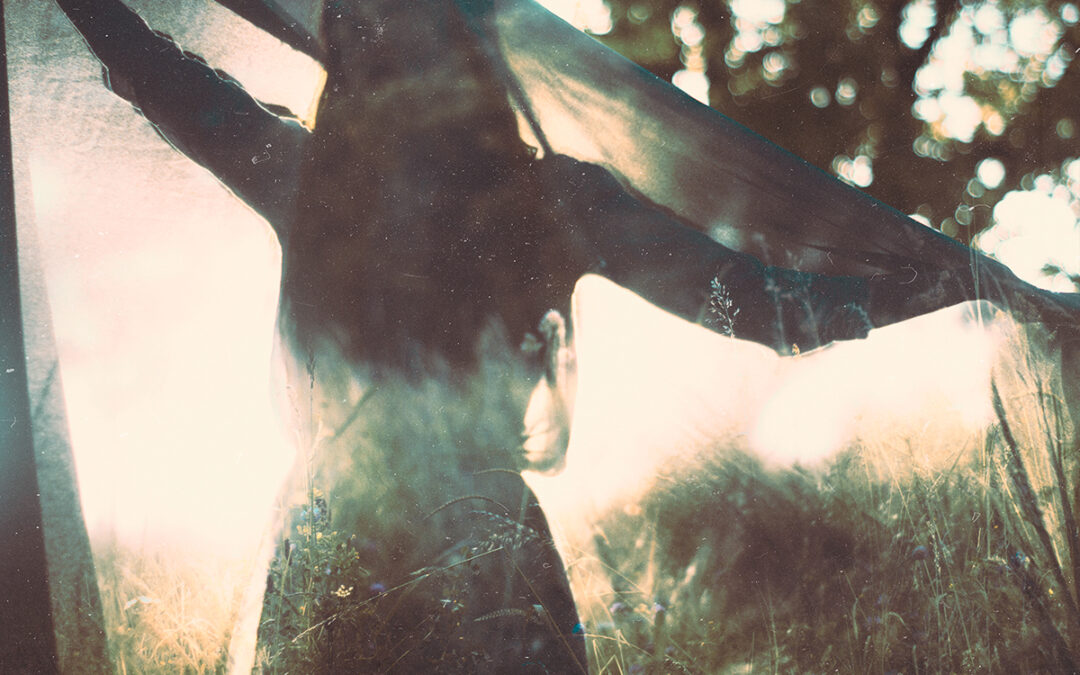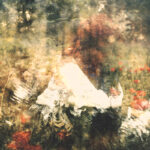When two worlds meet, they touch, they kiss, and we find that love is not only felt in the hearts, it is known by the hands also.
Wild marriage narratives have fascinated humanity and are seen in manu genres throughout history, even long before Beauty and the Beast and Eros and Psyche. Through the enchantments and disenchantments of the beasts or supernatural lovers, we can actually learn a great deal about our own human nature and relationships, and uncover the beliefs we hold about each other.
Sometimes the lovers cannot reunite and the stories end with the loss of a lover; they either can’t reconcile the different worlds from which they come from or they can’t accept the wilderness and wild unknown inner lands of their partner. These narratives also portray the worldview, in which sharper distinctions are made between the human realm and the wilderness. The two lovers are just very different, coming from distinctly separate worlds, and any attempt to unite the two will be doomed for failure or just temporary. One such example is the Scandinavian ballad story of Agneta and The Sea King.
Other times, stories end with the lovers being reunited after one or both have been transformed, such as in East of the Sun, West of the Moon and Eros and Psyche. In these tales, there is an almost interconnected universal longing to re-establish a lost intimacy with the natural and wild; and while reunited, they still bring the scent of the wild with them in the human realm and find a way to reconcile their two worlds in a joined new one.
Today we’ll talk about the wild that each woman has within her undergrounds: her connection to nature, to the wild and mysterious, and her need to be appreciated and accepted for that freedom of her essence and natural flow. We’ll understand this through the samodiva, who is wild maiden, a woodland nymph in Bulgarian folklore. She will never be just an ordinary woman even if captured by a human lover; she’ll always be an ethereal bride joining the bridegroom to the mysteries of the wild, and yet they can still love each other and be together in one world.
In Bulgarian folklore and Slavic Myth, samodivas are woodland fairies, nymphs or sylphs. The word samodiva combines two words: samo meaning “only” to emphasize the essence of following word, and diva meaning “wild” or “divine”, from deus, God; and so, samodiva means “wild one” or “wild only” or “she who serves only the divine.
Samodivas are ethereal and magnetic in their attraction; they are unearthly beautiful and eternal maidens who did not want to get married; they desired to retain their wild, pure and divine essence living in nature. They are connected to places related to water such as lakes, wells, ponds and rivers; and live hidden in the woods and forests or near caves.
They are free spirited and usually depicted with long, loose blonde hair wearing white free flowing dresses, flowers wreaths, and sometimes having a veil. They have an affinity for fire, and are as light as air which makes them fly, and their skin is fair and glowing. They love dancing and singing, and often enchant others in this way. Men fall in love with them at first sight and so samodivas were known to be dangerous.
They reign in the mountains and are fierce protectors of nature who is their home. They ride on deer or elk, who is their beloved companion; and the samodivas will seek revenge on anyone who hurts their deer.
Samodivas also appear in Bulgarian poetry by the revolutionary Hristo Botev, where he said that the samodivas comfort the dying man in his last moments of his life, symbolizing bravery and the union between man and the land he sacrificed himself to protect.
Any man that sees a samodiva falls in love with her, but she rarely leaves her nature. The dress or veil of the samodiva is magical, and when someone steals it from her she can’t find her home; and this is how human men trap the samodivas to come live with them. She can live like that for years, even have children, but if she finds her dress, she remembers her home and goes back to nature taking her children also; she also finds the nearest body of water, and bathes there in a ritual to restore her virginity and purity.
In an old Bulgarian folk song, The Samodiva who married against her will, three samodivas take off their magical white dresses to bathe but are seen by a shepherd boy who falls in love with one of them. He steals her dress and no matter how much she pleads with him to give it back to her because otherwise she can’t go home, he refuses. This is similar to selkies and swan maidens where men also steal their skins, so that they marry them.
On their wedding night, all the villagers insist that the samodiva dances for their amusement but she says that she can’t dance as beautifully without her dress. At last, her husband, pressured by everyone, gives it back to her and she flies away.
Yet sometimes a samodiva does fall in love with a human man, and despite their differences they find their way to one another and manage to stay together; but this is usually after the bridegroom has proven himself to her and has made a lot of effort to win her heart, while also respecting and accepting her true self.
Samodivas make great wives not just because of their immense beauty and seductiveness, but also because of their knowledge of herbs which helps her to care for their family.
In the Bulgarian folk tale Diva Samodiva, we see a young shepherd who is in love with a samodiva. His grandfather warns him she’ll run away from him, but he doesn’t care, he loves her, “Let her run if she wants, I just want a chance.” And so each night by the lake, he plays the flute for her to watch her dance and admire her beauty. Eventually one day she becomes so light she starts flying away, and he pleads her to tell him where he can then find her, to which she says, “Omainiche”.
And so, the shepherd goes on a long journey to search for this unknown pleace that no one had ever heard of. After many trials and hardships, one day he finds it with the help of an eagle, and he comes back to her. At that point, the samodiva tells him that she has grown to love him because of his true qualities and they go back to their home together.
In the story Samodiva by Elin Pelin, one night a man finds samodiva in the deep woods by a gentle river stream, and she is crying. Seeing him she is startled and instinctively pulls her veils to fly away, but the young man, captured in love by her, calmly and softly says, “Please don’t worry beautiful girl, I am not here to capture you nor hurt you. I just want to know who are you and why are you crying, are you lost, can I help you?”
After some silence she admits to him that she is samodiva, and he professes almost through tears, “My God how long I’ve longed to see you and always wondered if the stories were true of your existence. When I was a little boy I first saw you in a dream, and each day since I’ve prayed for you that you exist – and that I’ll meet such beauty, purity and light some day. As a teenager in my youth you still came to me in dreams, charming and fiery, and these fires were driven me to be a good man, working hard, with a heart burning with desire to meet you some day and be worthy of you. My dreams have chased you for a long time, my heart has longed for you, loved you, prayed for you!”
“You are from the city?” the samodiva asked him. “Yes,” the man replied.
“Ah yes! You from the cities! Are you one of those people who chased us through the woods? Are you of those who took away our shepherds who cared for us and our forest and animals; why did you make canals of our forest rivers, as if imprisoning them; why did you cut down our forests; why did you deafen our mountains with the screams of railways; why did you spoil the air with factory smoke; why did you take away the joy from the hearts of people; and why did you make them unable to love? Why?”
The samodiva had stopped crying and was now rising in anger, though she still looked flawlessly beautiful and gentle with her movements through her hair,
“You’ve taken away from people the ability to love and you’ve impoverished the world with poverty of souls and spirits! We no longer fly together through the forests, we do not bathe merrily in the streams, we do not play madly in the moonlight. We are broken and sad. You have taken from us the young mountain shepherds, our carefree and free-spirited lovers. Their amorous pipes and flutes no longer echo in the mists, their passionate sighs no longer float under the clear night skies, they have disappeared. You there from their cities created new worries and destroyed us too, and them. Now there are soulless, bitter people who forgot the connection to nature and the divine. Those great cities that rose above the earth rose above the broken hearts of men. No one prays in your magnificent temples anymore. I loved a young shepherd but he is now gone and not coming back and my heart is broken.”
“My darling samodiva,” replied the man, “I will love you forever, here is my heart, take it, and you will feel soothed because you will not be alone.”
“With you? No!” and she flew away.
This particular story shows the aspect of the samodiva that is capable of loving a man, but not just any man; and it’s interesting because it is published in 1904, and we still see the importance of nature and warnings about how the over-materialism can create impoverished states of being within the spirit of someone.
In similar story narratives to the first story, a hunter or a young prince is so smitten with love at first sight that he will deceive or even commit several crimes for the sole purpose of keeping his beloved within his grasp. These unjust behaviours are ultimately just attempts to domesticate the wild. Captive bride tales such as selkies, swan brides and mermaids share the common narratives where the wildness of the bride is stolen from her, which is often represented by a dress, so that she is captured by a besotted man.
As tales are ways to reflect back on our own desires, many of these tales were written during times when men had anxieties that their wives would leave them. They also feared the sexual energies of women and especially feared those women who were more self expressive and stood up for themselves.
But what happens when love is captured?
Neither the husband nor the wife are on the same page; their union is doomed from the start and it is made possible only because of trickery. The husband has done nothing to win the heart of his beloved and win such a powerful wife, such as a samodiva or a swan maiden. And the bride has no choice of her own and is trapped.
This kind of marriage cannot last in its fractured form; there is an unequal power dynamic and unless they find a common, more compassionate and understanding land, the marriage will end miserably.
No matter how compliant a swan maiden or a samodiva may be, because they don’t have their dresses, they will always live in unspoken sadness and the marriage itself will be build upon unspoken tension. Her husband will never be sure of her affections because she was basically taken hostage. Her dress and her animal skin are all signs of who she truly is, of her wild nature which is her true essence; and how is it true love if she is forced to abandon this from the start?
Love is not about taking away one’s freedom; love is free and still we choose to be with one another, rather than being forced into submission; love happens when we are with someone not because we must but because we want to.
In these narratives, he is actually stealing the very thing that attracted him to her in the first place; he fell in love with who she is, with her dancing, her beauty, her freedom, her unrestrained magical self-expression, and her ever shining light because she was in her true nature.
And yet he then steals it away from her and she becomes a pale version of her true self. In real life, something like this would go downhill sooner or later; we will begin to resent one another; and he will no longer even be attracted to her anyway because she is no longer who she is.
There are marriages that will break apart because of the inability of the pair to integrate into one another’s worlds, explore and accept one another’s true selves, and provide the needed supportive space to be their true selves.
The wild theme also refers to how we’ll never fully know the inner worlds and lands of another person no matter how long we’ve lived together under the same roof – there will always be something wild and unknown in them, just as there is within ourselves. So we need to commit to explore one another and pay attention to one another; we need re-explore, re-learn and re-discover the kissing, the holding, the tending to, and kiss and hold not the way we always did, but the way we need to right now. Otherwise as time goes by and we don’t pay attention to one another, we may eventually grow apart and can’t find each other’s worlds anymore.
The samodiva represents the wildness that lives in the underground of a woman; her connection to the divine and the pure and the unformed. She is nature itself, the soil, the water, the longing, the mysticism, the freedom to dance, the joy of swimming in the lake in the rain and walk barefoot, she is the heat underground and the voice beyond time before time. This is something we need to nurture within ourselves as women, and it is something that needs to be accepted by our chosen one.
Both nature and human live inside of us; both earth and heavens, soil and stars, both masculine and feminine, yin and yang, moon and sun. They are a part of one, and their harmony creates harmony in the world also. If there is no harmony between us and our inner natures, there is no harmony externally also.
A shepherd needs his samodiva to be in touch with higher solar wisdom, as well as the wildness and purity and the inner light; and the samodiva too needs her shepherd, because he plays her the music and he sees her, just like the Sun sees her and shines upon her; and she is seen, and so the world too knows of her light. He can take care of her land and animals also; he can protect her deer; and he can protect her space in the woods where she can always dance and be free. Sure they come from different worlds, but what can unite these worlds is the acceptance of one another, because love means acceptance.
We too sometimes are different from one another, coming from different worlds, but if we know how to reconcile these worlds love can nurture the soils for many years ahead in union. Relationships thrive on authenticity and being our true self is what allows true love to happen. No one should take you away from your inner nature, connection to your God, and your true self, true essence, true fragrance. Love expands us in freedom to be our true selves and thrive, and expand even more of who we truly are.
For personal readings with me, you are welcome to browse through my Offerings.

For more of my writings, browse through my Art of Love.
If you wish to support me and my work, you may do so by sharing it or donate here. For personal readings with me, you may visit my Offerings.
Your support means so much to me! Thank you wholeheartedly!
Beautiful cover art by Maxime Simoncelli, his official website is linked here. All rights reserved to the artist.




